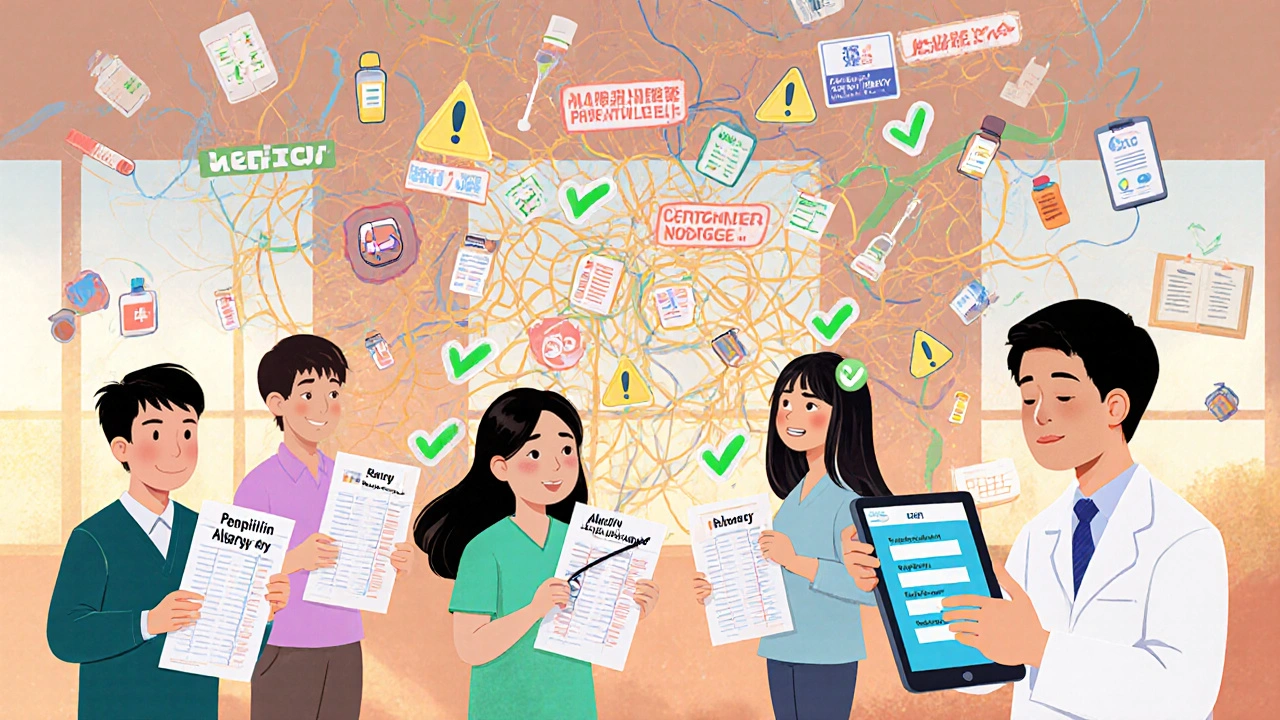Allergy Reconciliation: Understanding Medication Triggers and Safe Adjustments
When you start a new medication, your doctor doesn’t just check what you’re taking—they ask: allergy reconciliation, the process of reviewing a patient’s documented drug allergies to avoid harmful reactions. Also known as medication allergy review, it’s not just paperwork—it’s a safety check that stops bad reactions before they start. Many people think they’re allergic to penicillin because they got a rash as a kid, but 90% of those claims turn out to be false. Without proper allergy reconciliation, you might be denied effective treatments, given riskier alternatives, or even hospitalized for a reaction that could’ve been avoided.
This process ties directly to medication safety, the practice of preventing errors and adverse events related to drug use. Think of it like double-checking your GPS before driving—you wouldn’t trust a route that ignores road closures. Same with meds. If your chart says "allergic to sulfa" but you’ve taken it for years without issue, that label needs verification. drug allergies, immune system responses triggered by medications that can range from mild rashes to life-threatening anaphylaxis aren’t always obvious. Some reactions show up days later. Others mimic infections or side effects. That’s why medication history, a complete, accurate record of all drugs taken, including doses, timing, and reactions matters more than you think. A missed detail can mean the difference between a smooth treatment and an ER visit.
What you’ll find in these posts isn’t theory—it’s real-world guidance. You’ll see how people caught hidden allergies by tracking symptoms after taking common drugs like antibiotics or pain relievers. Others learned how to safely challenge false allergy labels with supervised testing. There are guides on using pill organizers to track reactions, how certain meds like antihistamines can mask symptoms instead of solving them, and why some drug interactions look like allergies but aren’t. You’ll learn what to ask your pharmacist, how to update your records after a reaction, and why skipping this step puts you at risk—even if you’ve been on the same meds for years. This isn’t about fear. It’s about clarity. And it starts with getting your allergy history right.

How to Update Your Allergy List Across All Healthcare Providers
Learn how to ensure your allergy list is accurate across all healthcare providers to avoid dangerous drug reactions. Step-by-step guide for patients on updating EHR records, requesting tests, and using patient portals.